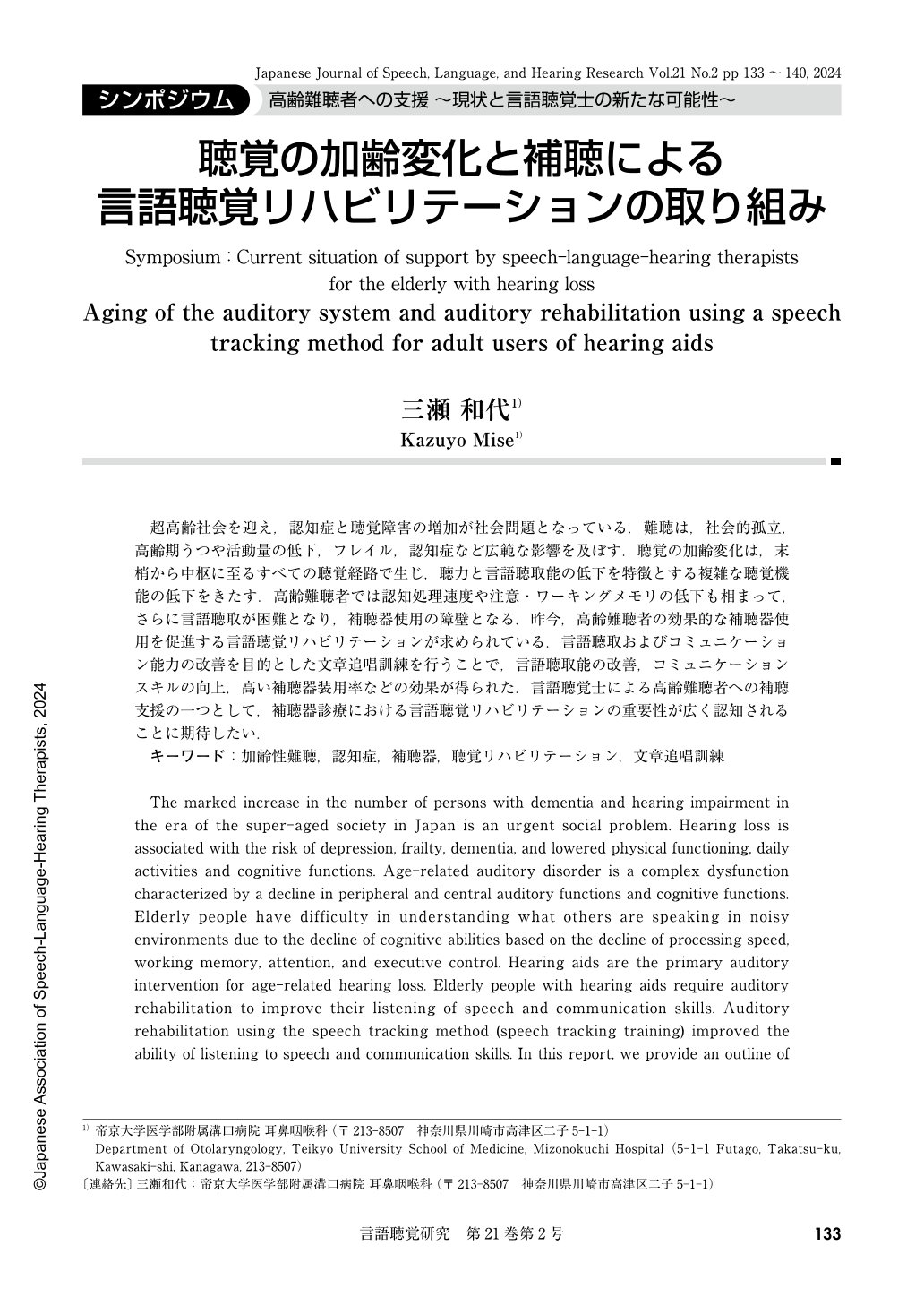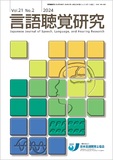Japanese
English
- 有料閲覧
- Abstract 文献概要
- 1ページ目 Look Inside
- 参考文献 Reference
超高齢社会を迎え,認知症と聴覚障害の増加が社会問題となっている.難聴は,社会的孤立,高齢期うつや活動量の低下,フレイル,認知症など広範な影響を及ぼす.聴覚の加齢変化は,末梢から中枢に至るすべての聴覚経路で生じ,聴力と言語聴取能の低下を特徴とする複雑な聴覚機能の低下をきたす.高齢難聴者では認知処理速度や注意・ワーキングメモリの低下も相まって,さらに言語聴取が困難となり,補聴器使用の障壁となる.昨今,高齢難聴者の効果的な補聴器使用を促進する言語聴覚リハビリテーションが求められている.言語聴取およびコミュニケーション能力の改善を目的とした文章追唱訓練を行うことで,言語聴取能の改善,コミュニケーションスキルの向上,高い補聴器装用率などの効果が得られた.言語聴覚士による高齢難聴者への補聴支援の一つとして,補聴器診療における言語聴覚リハビリテーションの重要性が広く認知されることに期待したい.
The marked increase in the number of persons with dementia and hearing impairment in the era of the super-aged society in Japan is an urgent social problem. Hearing loss is associated with the risk of depression, frailty, dementia, and lowered physical functioning, daily activities and cognitive functions. Age-related auditory disorder is a complex dysfunction characterized by a decline in peripheral and central auditory functions and cognitive functions. Elderly people have difficulty in understanding what others are speaking in noisy environments due to the decline of cognitive abilities based on the decline of processing speed, working memory, attention, and executive control. Hearing aids are the primary auditory intervention for age-related hearing loss. Elderly people with hearing aids require auditory rehabilitation to improve their listening of speech and communication skills. Auditory rehabilitation using the speech tracking method (speech tracking training) improved the ability of listening to speech and communication skills. In this report, we provide an outline of speech tracking training and its effects, and discuss the importance of auditory rehabilitation and the clinical support of speech-language-hearing therapists.

Copyright © 2024, Japanese Association of Speech-Language-Hearing Therapists. All rights reserved.


